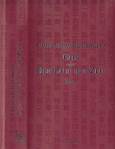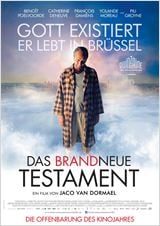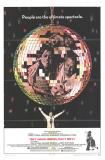Zuweilen (IV)
merkt man (wie ich schon häufiger feststellte) erst spät, dass einem etwas fehlt:
Schon 1980 starb Vladimir Vissotski.
Nun weiß gerade Zero G Sound etwa über ihn zu berichten:
 Vladimir Semyonovich Vysotsky (or Vladimir Vissotski) was born and brought up in central Moscow. He made his living as an actor, joining Yuri Lyubimov's company at the Taganka Theatre in 1964 and performing there to the end of his life. He was a mainstay of the theatre's ensemble style, but also took the leading role in several epoch-making productions, notably as Galileo in Brecht's play, and then as a generationdefining Hamlet. Besides the theatre, Vysotsky regularly appeared in films, usually playing "bad boy" roles. Part of his stock-in-trade as an actor was the performance of songs to guitar accompaniment, and it was in this genre, delivering his own words, that he became more famous in his own lifetime than any other Russian creative artist.
Vladimir Semyonovich Vysotsky (or Vladimir Vissotski) was born and brought up in central Moscow. He made his living as an actor, joining Yuri Lyubimov's company at the Taganka Theatre in 1964 and performing there to the end of his life. He was a mainstay of the theatre's ensemble style, but also took the leading role in several epoch-making productions, notably as Galileo in Brecht's play, and then as a generationdefining Hamlet. Besides the theatre, Vysotsky regularly appeared in films, usually playing "bad boy" roles. Part of his stock-in-trade as an actor was the performance of songs to guitar accompaniment, and it was in this genre, delivering his own words, that he became more famous in his own lifetime than any other Russian creative artist.
The beginning of Vysotsky's professional life coincided with the appearance of guitar poetry, which in its turn was enabled by the availability of the portable tape recorder in the USSR. Vysotsky's songs could therefore be recorded free of official controls, and the results duplicated. The popularity of these homemade tapes, and the semi-legal appearances Vysotsky made in clubs and other institutions, brought him to the attention of the authorities. He was subjected to harrassment because, in official eyes, the content and especially the style of his songs, saturated with robust humor, were unacceptable even within the relatively permissive boundaries of Socialist Realism in its later phases. Vysotsky was regularly censured by various official bodies, but, shielded by his unprecedented popularity, he was never subjected to serious reprisals.
Vladimir Vysotsky became an immensely popular singer/songwriter in the former Soviet Union and was eventually silenced and banished by government officials. When he died in 1980, at the age of 42, over one million people attended his funeral. The posthumous release of his poetry, in addition to his musical legacy and acting, endeared him to the masses. Fans still make pilgrimages to his grave to pay respects to the man who was, for his country, what Bob Dylan and Leonard Cohen were to America.
Until his death, Vladimir Vysotsky was a prophet without honor in his own country; although he wrote more than a thousand highly popular songs, he died without an official record release to his name. The reason for this studied neglect lay in the political tenor of his material. Vysotsky, who began performing in the 1960s, was quite critical of the Communist regime, and his lyrics took position on the Soviet status quo. His songs derived from the "blatny pesny" (literally, delinquent song) tradition, with its celebration of sex, drink, and street fights. Informally distributed cassettes ensured Vysotsky a wide and enthusiastic following. After his death, in 1980, Gorbachev granted his music an imprimatur and a 20-album retrospective was released.
Although aparently compiled in Germany, this CD is in Russian and contains some of Visotsky's most popular work. Although Visotsky composed more than a 1,000 songs, only a few of them were sanctioned by the Soviet government. This CD contains many of the songs that were "officially" released to the public and were a staple on Russian radio in the 70's. A unique feature of this CD is that it contains many songs with orchestral background in contrast to the griddy guitar solos that Visotsky usually performed in underground clubs.
Siehe auch hier!
Schon 1980 starb Vladimir Vissotski.
Nun weiß gerade Zero G Sound etwa über ihn zu berichten:
 Vladimir Semyonovich Vysotsky (or Vladimir Vissotski) was born and brought up in central Moscow. He made his living as an actor, joining Yuri Lyubimov's company at the Taganka Theatre in 1964 and performing there to the end of his life. He was a mainstay of the theatre's ensemble style, but also took the leading role in several epoch-making productions, notably as Galileo in Brecht's play, and then as a generationdefining Hamlet. Besides the theatre, Vysotsky regularly appeared in films, usually playing "bad boy" roles. Part of his stock-in-trade as an actor was the performance of songs to guitar accompaniment, and it was in this genre, delivering his own words, that he became more famous in his own lifetime than any other Russian creative artist.
Vladimir Semyonovich Vysotsky (or Vladimir Vissotski) was born and brought up in central Moscow. He made his living as an actor, joining Yuri Lyubimov's company at the Taganka Theatre in 1964 and performing there to the end of his life. He was a mainstay of the theatre's ensemble style, but also took the leading role in several epoch-making productions, notably as Galileo in Brecht's play, and then as a generationdefining Hamlet. Besides the theatre, Vysotsky regularly appeared in films, usually playing "bad boy" roles. Part of his stock-in-trade as an actor was the performance of songs to guitar accompaniment, and it was in this genre, delivering his own words, that he became more famous in his own lifetime than any other Russian creative artist.The beginning of Vysotsky's professional life coincided with the appearance of guitar poetry, which in its turn was enabled by the availability of the portable tape recorder in the USSR. Vysotsky's songs could therefore be recorded free of official controls, and the results duplicated. The popularity of these homemade tapes, and the semi-legal appearances Vysotsky made in clubs and other institutions, brought him to the attention of the authorities. He was subjected to harrassment because, in official eyes, the content and especially the style of his songs, saturated with robust humor, were unacceptable even within the relatively permissive boundaries of Socialist Realism in its later phases. Vysotsky was regularly censured by various official bodies, but, shielded by his unprecedented popularity, he was never subjected to serious reprisals.
Vladimir Vysotsky became an immensely popular singer/songwriter in the former Soviet Union and was eventually silenced and banished by government officials. When he died in 1980, at the age of 42, over one million people attended his funeral. The posthumous release of his poetry, in addition to his musical legacy and acting, endeared him to the masses. Fans still make pilgrimages to his grave to pay respects to the man who was, for his country, what Bob Dylan and Leonard Cohen were to America.
Until his death, Vladimir Vysotsky was a prophet without honor in his own country; although he wrote more than a thousand highly popular songs, he died without an official record release to his name. The reason for this studied neglect lay in the political tenor of his material. Vysotsky, who began performing in the 1960s, was quite critical of the Communist regime, and his lyrics took position on the Soviet status quo. His songs derived from the "blatny pesny" (literally, delinquent song) tradition, with its celebration of sex, drink, and street fights. Informally distributed cassettes ensured Vysotsky a wide and enthusiastic following. After his death, in 1980, Gorbachev granted his music an imprimatur and a 20-album retrospective was released.
Although aparently compiled in Germany, this CD is in Russian and contains some of Visotsky's most popular work. Although Visotsky composed more than a 1,000 songs, only a few of them were sanctioned by the Soviet government. This CD contains many of the songs that were "officially" released to the public and were a staple on Russian radio in the 70's. A unique feature of this CD is that it contains many songs with orchestral background in contrast to the griddy guitar solos that Visotsky usually performed in underground clubs.
Siehe auch hier!
gebattmer - 2007/04/19 23:33



























































Trackback URL:
https://gebattmer.twoday.net/stories/3627823/modTrackback